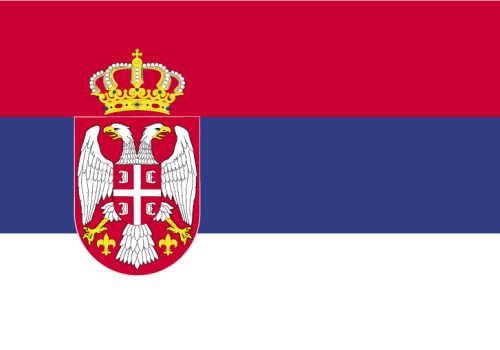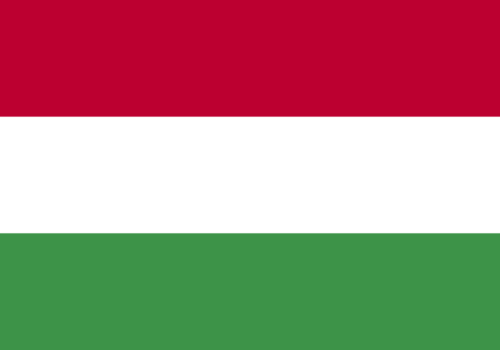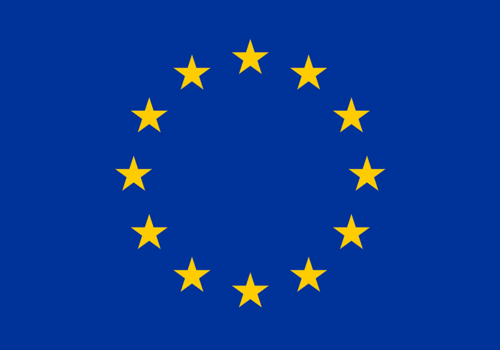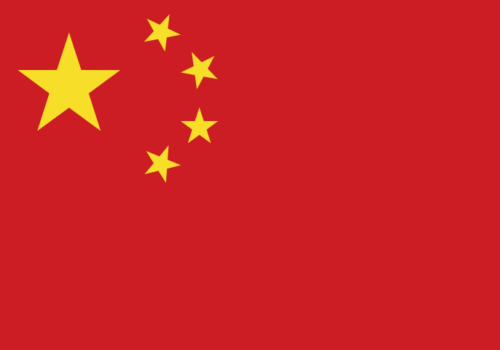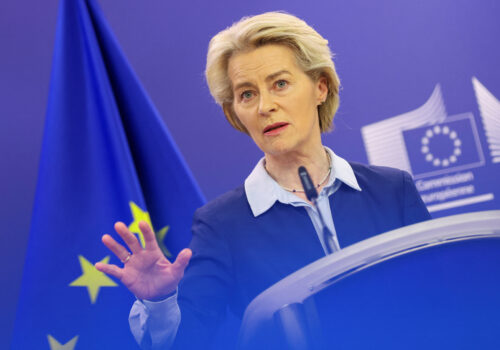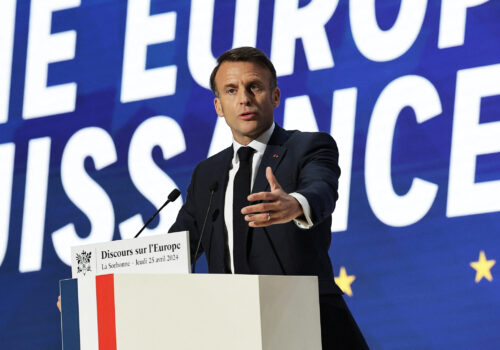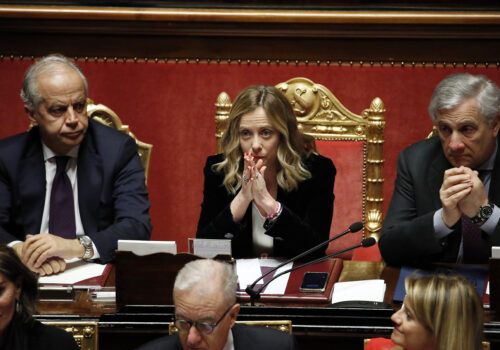What to look for as Xi Jinping visits France, Serbia, and Hungary
Then and now, it begins with Paris. In May 1975, Chinese Vice Premier Deng Xiaoping traveled to France in the first official visit by a Chinese Communist leader to a Western country. He would go on to open China to the world. Forty-nine years later almost to the day, a very different Chinese leader, Xi Jinping, will travel to Paris, Belgrade, and Budapest, just as Beijing’s relationship with the West seems to be narrowing. Xi’s May 5-10 trip comes one year after the European Union (EU) began “de-risking” its economy from China and follows cases of suspected Chinese espionage in Europe. Below, our experts share what to look for at each of the stops during Xi’s European grand tour.
The view from . . .
France
France is Xi’s first stop, as he sets out to re-engage the old continent. French President Emmanuel Macron’s invitation of European Commission President Ursula von der Leyen to join for a trilateral meeting with Xi on the first day will be key to projecting a unified approach. Just last week, Macron warned of the European project disintegrating should it not bolster its political and security dimensions. Serbia and Hungary maintain a cooperation format with China that circumvents the EU. This presentation of European unity vis-à-vis China is customary for Macron, following his visit to Beijing in April 2023 with von der Leyen, and his invitation to then German Chancellor Angela Merkel and then European Commission President Jean-Claude Juncker during a Xi visit to Paris in March 2019.
At a bilateral level, Macron spelled out his willingness to continue partnering on “global issues” and “do everything we can to bring China back into line with international rules,” as he explained in a new interview with the Economist. But 2024 is not 2019, and there is much more clarity about the limits of viewing China as a trusted partner. The EU has since reinforced trade defense instruments and has been more active in correcting economic distortions and competition. France has notably pushed for the Commission’s investigation into Chinese electric vehicle (EV) subsidies. With China now facing an economic downturn, structural overcapacity issues—especially in sectors that create competitive distortions for Europe and France, including EVs, solar panels, and batteries—will undoubtedly be a key topic of the visit.
Moreover, the credibility of Macron’s willingness to take on more political leadership for Ukraine and European security requires a strong stance against China’s support for Russia. With Russian President Vladimir Putin set to visit China in late May, Macron will likely engage Xi on similar terms to 2023, when he urged the Chinese leader not to send weapons to Russia. Since then, however, Chinese support to Russia has only increased, making ample use of plausible deniability and dual-use goods. The hope is that Macron’s upcoming conversations with Xi reflect this reality.
—Léonie Allard is a visiting fellow at the Atlantic Council’s Europe Center, formerly at the French Ministry of Armed Forces. The opinions expressed are those of the author.
Serbia
Over the past fifteen years, Serbia has developed a comprehensive strategic partnership with China, based on a close economic and political relationship. China has emerged as Serbia’s largest individual provider of foreign direct investment, its second-largest trading partner after the EU, and a key partner in much-needed infrastructure development. Xi’s upcoming visit to Serbia offers an opportunity for both sides to showcase the achievements of their cooperation over the past decade and a half.
However, it is unlikely that the leaders will address the challenges arising from increased Chinese presence in the country. These include the negative environmental impact of Chinese companies, lack of transparency in negotiating infrastructure projects, and criticism from Serbia’s Western partners, who view the country as a Chinese hub at the gateway to the EU.
Xi’s visit will be the second in eight years and comes with much symbolism. Scheduled for May 7-8, it coincides with the twenty-fifth anniversary of the NATO bombing of the Chinese embassy in Belgrade during the intervention in Yugoslavia, which eventually led to the fall of Serbian President Slobodan Milosević’s regime. This event significantly impacted Chinese sentiment toward NATO and the global governance system that emerged after the fall of the Berlin Wall.
Today, the bombing remains a significant topic for Chinese officials, who use it to support narratives that question the values of liberal democracies. For Serbia, the visit presents an opportunity to strengthen its position as China’s main partner in the Western Balkans. This marks the highest-level visit to Serbia in years and carries with it the hope of new joint projects that will facilitate the country’s economic growth.
—Stefan Vladisavljev is a program director at Foundation BFPE for a Responsible Society.
Hungary
Xi’s visit to Europe is part of the Chinese leadership’s efforts to reverse Europe’s toughening policy on de-risking from China. Central and Eastern Europe plays an important role in this mission as Beijing has found several like-minded countries here that also challenge Washington’s (and its closest allies’) current geopolitical strategy and wish to build closer relations with China and Russia. Serbia and Hungary are key pieces in this Chinese puzzle.
In Hungary, Xi is meeting with Hungarian Prime Minister Viktor Orbán, who has closely aligned Hungary’s foreign policy with China and Russia in the past decade. Budapest joined the Belt and Road Initiative (BRI) in 2015 and has been doing Beijing’s bidding within the European Union on China’s human rights record and Taiwan.
Xi is expected to discuss with Orbán several of the ongoing BRI infrastructure projects and reach agreements on new ones. He is likely to raise the issue of accelerating the Belgrade-Budapest high-speed railway project during his talks both in Belgrade and Budapest. The project was launched in 2019, but construction on the Hungarian side had been lagging until the Hungarian government decided to speed up the work earlier this year. In February, Greece announced that it would join this project and expand it to Athens, counterbalancing Italy’s recent withdrawal from BRI by creating an alternative route for Chinese exports to reach the heart of Europe from the south.
Xi and Orbán are expected to announce major new BRI projects as well. To support increasing industrial output in Hungary, China is going to build the railway line connecting Liszt International Airport with Budapest as well as the so-called V0 railway ring, designed to help move international freight traffic outside of the capital.
Furthermore, they are likely to discuss the implementation of their recently signed bilateral security cooperation agreement, which allows Chinese police officers to work in Hungary in neighborhoods with extensive Chinese immigrant populations or a high Chinese tourist presence.
—Zoltán Fehér is a nonresident fellow with the Atlantic Council’s Global China Hub. Previously, he worked as a foreign policy analyst at the Hungarian embassy in Washington, DC, and as Hungary’s deputy ambassador and acting ambassador in Turkey.
The choice of European countries for Xi’s visit and the timing ahead of the European elections in June are hardly fortuitous in China’s geopolitical calculus. Xi seeks to ease trade tensions, particularly as Europe intensifies scrutiny of China’s purportedly unjust commercial practices across various sectors, spanning from EVs to medical devices and solar panels. Also central to Xi’s itinerary is his effort to sustain Chinese influence in Central and Eastern Europe, a region which has increasingly distanced itself from cooperation with Moscow after Russia’s invasion of Ukraine.
China seeks to explore ways to exploit strategic weakness against Europe and deploy its signature “divide and conquer” strategy. Budapest—a vocal EU critic, which espouses a pragmatic, values-neutral stance toward economic relations—has been especially useful to this end. The country has lured some ten billion euros worth of Chinese investments just in the last year. The willingness to enhance cooperation further, potentially going beyond just economic and investment issues to the infrastructure and security realms, seems to be mutual. Orbán sees the partnership as pivotal to becoming Europe’s hotbed for EV and EV battery manufacturing in the next few years.
Xi’s forthcoming diplomatic voyage to Europe is a significant chapter in China’s strategic playbook. It embodies Beijing’s skillful navigation of the delicate balance between aggressively advancing its economic imperatives and preserving amicable diplomatic relations, possibly even bolstering its sway in certain quarters of the continent.
—Soňa Muzikárová is a nonresident senior fellow at the Atlantic Council and a political economist focused on Central and Eastern Europe.
European Union
EU-China relations have worsened. Xi’s visit to Europe, therefore, comes at an important time. The key question for the EU is: Does he have anything attractive to offer? China challenges the EU in two core arenas—security and the economy. In spite of repeated outreach by European leaders, there has been no real progress. Beijing is doubling down on its support for Russia’s war in Ukraine, and Chinese overcapacities are threatening to flood the European market.
The European Commission’s patience has run thin. Now, preliminary action follows words. Brussels has plans to add more Chinese firms to the Russia sanctions blacklist, has launched raids against Chinese manufacturer Nuctech over foreign subsidies, opened proceedings against Chinese-owned social media company TikTok, and used its international procurement instrument to investigate China’s medical devices sector. Brussels is signaling to Beijing that something’s got to give. But it’s a balancing act. The Commission needs to raise the pressure yet avoid a downward spiral by staying below the threshold of Chinese retaliatory action.
So all eyes are on Xi: Will the emperor bring gifts, such as Chinese participation in the Ukraine peace conference, reduced material support for Russia, and greater economic opportunities for the EU? Or will he placate and divide the Europeans by making bilateral offers, for example, to Viktor Orbán? Macron’s invitation to von der Leyen to join his meeting with Xi is in this regard a strong move, ensuring that the Commission has a voice in this exchange.
—Roderick Kefferpütz is a nonresident senior fellow at the Atlantic Council’s Europe Center and the director of the Heinrich-Böll-Stiftung European Union office in Brussels. The opinions expressed are those of the author and do not necessarily represent the views of the Heinrich-Böll-Stiftung.
China
Xi is making his state visits to France, Serbia, and Hungary with three goals: repairing relations in Europe damaged by China’s support for Russia’s war on Ukraine, blunting the EU’s economic security agenda vis-à-vis China, and showcasing Beijing’s strong ties with its stalwart partners Serbia and Hungary.
Xi will use his time with Macron to downplay China’s ongoing support for Putin’s war machine. He will also underscore that France and other European nations continue to benefit from economic engagement with China, and that they should pursue an independent course rather than following Washington’s lead. This message will jibe well with the perspectives of those in France wary of aligning too closely with the United States on this and other issues. Beijing, cognizant of the increasingly apparent differences within Europe on countering China’s subsidies in key industries such as EVs, aims to create wedges between member states to complicate the EU’s anti-subsidy probe into Chinese EV imports.
Xi may also hope to take further advantage of France’s past demonstrations of reluctance to expand NATO’s role in Asia and to express solidarity with Washington’s approach on Taiwan. Macron previously signaled that France cannot “blindly follow the United States’ lead” on Taiwan and should “avoid getting dragged into crises” that are not its own.
Meanwhile, Xi’s trip to Hungary will showcase China’s strong ties with an EU country with decidedly more positive views on China than those currently emanating from Brussels. China is expected to unveil new BRI investments both there and in EU-candidate Serbia that demonstrate China’s continued importance as an economic partner. China recognizes Serbia’s strategic importance in the Western Balkans and signed a free trade agreement with the country late last year. Xi will meet with Serbian President Aleksandar Vučić in Belgrade on May 7, exactly twenty-five years after an accidental NATO attack on China’s embassy there that killed three Chinese journalists.
Each of the stops on the itinerary will be in service of advancing his three goals for this trip.
—Matt Geraci is an assistant director of the Atlantic Council’s Global China Hub.
Further reading
Sun, Apr 7, 2024
Ursula von der Leyen set Europe’s ‘de-risking’ in motion. What’s the status one year later?
New Atlanticist By Jörn Fleck, Josh Lipsky, David O. Shullman
The European Commission president presented a new economic vision for the European Union’s relationship with China in March 2023.
Mon, Apr 29, 2024
‘Our Europe is mortal. It can die.’ Decoding Macron’s Sorbonne speech.
New Atlanticist By Gérard Araud
The French president recently delivered a nearly two-hour speech outlining an ambitious agenda for Europe.
Wed, Apr 24, 2024
Dispatch from Rome: Political stability gives Italy a chance to step into the spotlight
New Atlanticist By Jörn Fleck, Rachel Rizzo, James Batchik, Nicholas O’Connell
With newfound steadiness at home, Rome can make its priorities for the West heard, especially the security of the Mediterranean and outreach to Africa.
Image: Chinese President Xi Jinping waves as he arrives at San Francisco International Airport to attend the APEC (Asia-Pacific Economic Cooperation) Summit in San Francisco, California, U.S., November 14, 2023. REUTERS/Brittany Hosea-Small

